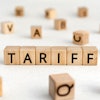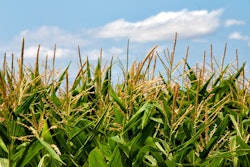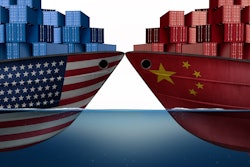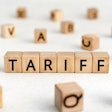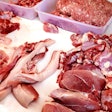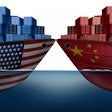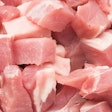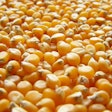
U.S. President Donald Trump’s new tariffs on Canada, Mexico and China went into effect on March 4. Canada and China responded immediately with retaliatory tariffs.
The new tariffs include 25% levies on imports from Canada and Mexico, and an additional 10% on goods from China.
China responded with additional tariffs of 10% to 15% on certain U.S. imports including agricultural and food products such as soybeans, wheat and meat, beginning March 10. It also suspended the soybean import licenses of three U.S. companies – CHS Inc., Louis Dreyfus Co. Grains Merchandising LLC and EGT.
Additional levies imposed by China comprised a 15% tariff on U.S. chicken, wheat, corn and cotton, and an extra levy of 10% on U.S. soybeans, sorghum, pork, beef, aquatic products, fruits and vegetables and dairy imports, effective March 10.
Canada Prime Minister Justin Trudeau said in a statement that his government would respond with 25% tariffs on $155 billion worth of American goods, starting immediately on $30 billion worth of goods and the remainder in 21 days.
“Our tariffs will remain in place until the U.S. trade action is withdrawn, and should U.S. tariffs not cease, we are in active and ongoing discussions with provinces and territories to pursue several non-tariff measures. While we urge the U.S. administration to reconsider their tariffs, Canada remains firm in standing up for our economy, our jobs, our workers and for a fair deal,” Trudeau said.
The immediate tariffs enacted by Canada include live poultry, poultry meat, pig meat, eggs, dairy products, wheat, rye, barley, animal feeds and feed supplements including concentrates.
Mexico President Claudia Sheinbaum said her government would announce its countermeasures on Sunday.
The USA Poultry & Egg Export Council (USAPEEC) said in a statement that Mexico was the largest export market for U.S. broilers in 2024 and the most important market for turkey, while Canada was the second largest export market for broilers in value, the second largest for turkey and the top market for eggs and duck. China was the third largest market for broilers in value.
"As one of the world's largest producers and exporters of poultry and eggs, we are facing a critical challenge," said Greg Tyler, president and CEO of USAPEEC. "Retaliatory tariffs being imposed by China, Canada and, potentially, Mexico are threatening to undermine the competitiveness of our exports and disrupt market access. This situation could lead to decreased exports, lower profits and, in the worst case, loss of market share to other international producers. It places us at an extreme disadvantage, while simultaneously escalating tensions with our major trading partners."
In a statement, American Farm Bureau Federation President Zippy Duvall urged a quick resolution to tariffs, saying the U.S. exported more than $83 billion in agricultural products to the three countries in 2024.
“Farmers support the goals of ensuring security and fair trade with other nations, but additional tariffs, along with expected retaliatory tariffs, will take a toll on rural America,” Duvall said. “Approximately 85% of our total potash supply – a key ingredient in fertilizer – is imported from Canada. For the third straight year, farmers are losing money on almost every major crop planted. Adding even more costs and reducing markets for American agricultural goods could create an economic burden some farmers may not be able to bear.”
The Fertilizer Institute (TFI) urged the Trump administration to provide a carveout from the tariffs for Canadian fertilizers, adding that 85% of U.S. potash imports come from Canada.
"Potash is an irreplaceable component of modern agricultural production, and the U.S. has historically sourced nearly all the potash used by farmers from international markets. Potash deposits are geographically specific and mine development in the U.S. is time intensive and costly," TFI said in a statement.
Additionally, it said, Canada supplies U.S. growers with nearly 10% of their nitrogen fertilizer needs, accounting for 25% of total nitrogen fertilizer imports, and nearly 20% of sulfur consumed by U.S. farmers and others.
National Farmers Union (NFU) President Rob Larew said the tariffs and retaliatory measures would have "serious consequences for American agriculture."
"Our farmers are the backbone of this country, and they need strong, fair trade policies that ensure they can compete on a level playing field — not be caught in the middle of international disputes," Larew said in a statement. "Trade policies must come with real, tangible protections for the farmers directly affected. We've heard there’s a strategy in place—now we need to see it. ... We urge the administration to work with our trading partners to prevent further harm to rural communities.”


